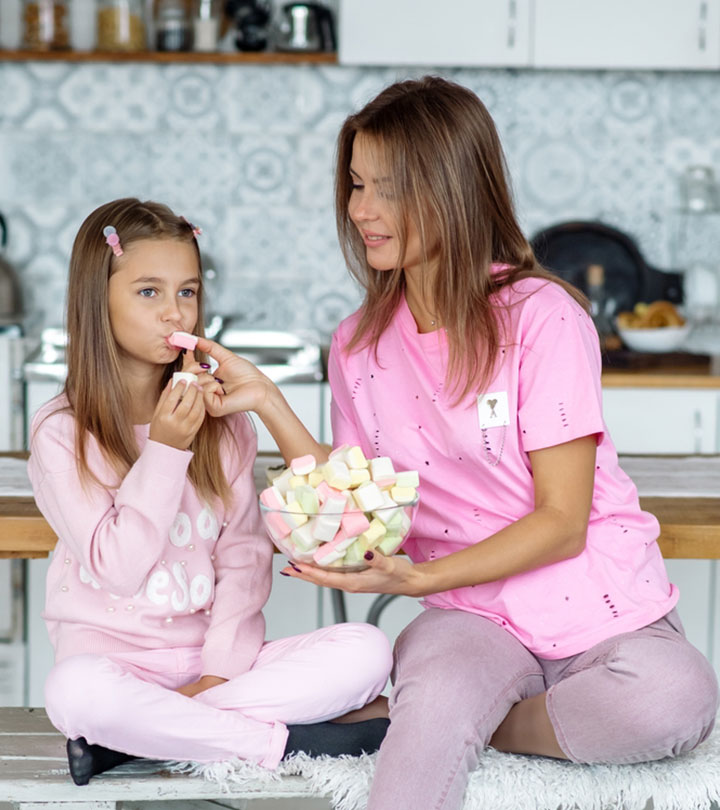
Image: Shutterstock
Parenthood unfolds as a dynamic journey, a blend of joyful highs and testing lows, full of laughter and hurdles. Amidst this, discipline emerges as a prominent theme. It encapsulates the art of nurturing your child’s conduct, instilling values like respect, responsibility, and empathy, all pivotal to their growth. This article delves into the heart of discipline strategies, navigating the concept’s nuances and approaching misbehavior with a blend of care and empathy. Read on!
What Is Discipline?
Discipline, in the context of parenting, is not about punishment, but rather a set of techniques and strategies aimed at helping your child understand right from wrong. It involves teaching them self-control, responsibility, and social skills that will serve them well as they grow and interact with the world around them.
How Can I Teach My Child Good Behavior?
Image: Shutterstock
Guiding your child toward positive behavior is a journey requiring patience and consistency. Employ these effective strategies to shape their character:
1. Clear Expectations
Communicate standards for behavior, chores, and responsibilities, providing a moral roadmap that empowers them to make responsible choices.
2. Lead By Example
Model virtues like kindness and conflict resolution through your actions, creating an environment where positive behavior is learned through observation.
3. Positive Reinforcement
Praise and acknowledge their good behavior, fostering a positive connection between virtuous actions and recognition.
4. Natural Consequences
Allow them to learn from the outcomes of their actions, promoting accountability and wise decision-making.
5. Open Communication
Create a space for open dialogue, building trust and guiding them through challenges and achievements.
6. Cultivate Empathy
Encourage understanding of others’ emotions, nurturing kindness and respect in their interactions.
7. Promote Problem-Solving
Equip them with conflict-resolution skills, enabling mature and empathetic approaches to challenges.
Why Does My Child Misbehave?
Image: Shutterstock
Children’s misbehavior holds a myriad of meanings. It can be their way of testing boundaries, seeking attention, or expressing emotions they can’t articulate. Misbehavior might arise from limited communication skills, a quest for independence, or the impact of changing environments. Hunger, fatigue, and social mirroring can also contribute to this issue. As they learn to navigate their emotions, misbehavior becomes a canvas of feelings. Understanding these motives offers a pathway to effective responses, nurturing emotional growth and a deeper connection with your child.
What Can I Do To Prevent Difficult Behavior?
Prevention is often the key to managing difficult behavior. Here are ways to create an environment that minimizes the occurrence of misbehavior:
1. Establish Routines
Children thrive on routines. Having a predictable daily routine can provide them with a sense of security and stability.
2. Provide Choices
Offer your child choices within limits. This empowers them and helps them feel more in control of their decisions.
3. Spend Quality Time
Dedicate time for one-on-one interactions with your child. Engaging in their interests and listening to them can strengthen your bond and reduce attention-seeking misbehavior.
4. Offer Healthy Outlets
Encourage your child to express their feelings through creative activities, like drawing or journaling, which can serve as healthy outlets for their emotions.
What Strategies Can I Use When My Child Misbehaves?
Image: Shutterstock
When your child misbehaves, it’s important to address the behavior while also ensuring they understand the reasons behind your response. Here are some strategies to consider:
1. Time-Out
Provide a designated space for your child to calm down and reflect on their behavior. This gives them a chance to regain self-control.
2. Logical Consequences
If their misbehavior is related to a specific action, implement logical consequences. For instance, if they refuse to finish their meal, they won’t get dessert.
3. Redirection
Shift your child’s attention to a different activity when you sense trouble brewing. This can effectively redirect their behavior.
How Should I React?
Image: Shutterstock
When responding to misbehavior, it’s important to stay calm and composed. Avoid reacting with anger or frustration. Instead, follow these steps:
1. Stay Calm
Take a deep breath before responding. Your calm demeanor can set the tone for a productive interaction.
2. Address Privately
If possible, address the issue privately to avoid embarrassing your child in front of others.
3. Use “I” Statements
Express your feelings using “I” statements. For instance, “I feel sad when you don’t pick up your toys” helps your child understand the impact of their actions.
Is It Harmful To Smack My Child?
Physical punishment, such as smacking, can have long-term negative effects on a child’s emotional and psychological well-being. It does not teach them appropriate behavior and can lead to fear, resentment, and decreased self-esteem. Instead of resorting to physical discipline, opt for more constructive strategies that focus on communication, understanding, and teaching alternatives.
Embracing discipline means embarking on a path of growth, shared learning, and strengthened bonds with your child. Grasping the essence of discipline, emphasizing prevention, and employing adept strategies empower you to steer your child toward positive behavior without compromising the precious parent-child connection. It’s essential to note that discipline isn’t about enforcing dominance, but rather fostering growth through love, respect, and patience. Your guidance paves the way for your child to traverse the world with empathy, responsibility, and unwavering integrity. Let us know in the comments your strategies for disciplining your child!
















